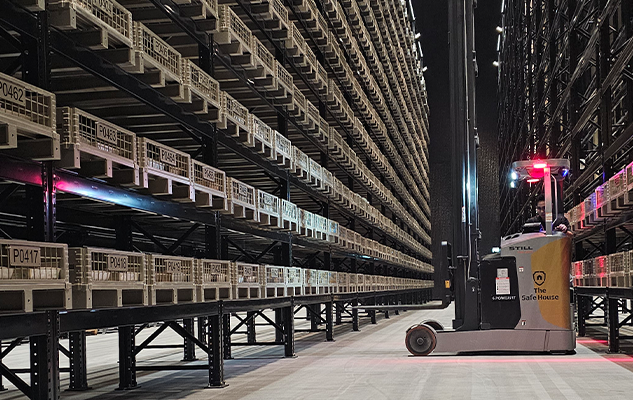Be an asset owner, not a creditor
The financial industry is almost entirely based on liabilities (referred to as IOUs, short for "I owe you"). Once cash is deposited into a bank, it is no longer owned by the depositors, it has become a bank asset that can be used for nearly any purpose. Most bullion storage systems, while promising some backing, operated in a similar IOU manner as they operate on generic quantities of a metal and not specific physical assets that can be owned by the customer.
IOU based systems offer great advantages to operators of storage programs because assets stored are property of the dealers/operators. IOU systems are also simple to implement and cost effective to run. However, IOU systems have substantial counterparty risk for depositors as they may lose everything if the dealer/storage operator becomes insolvent. For this reason and for other reasons, while IOU systems tend to be cheaper for both customer and operator alike, they are a poor choice if you are seeking to minimize counterparty risk.
Silver Bullion's founder, Gregor Gregersen, highlights how S.T.A.R. Storage ensures that you own your bullion (as opposed to merely being owed an allocation by your vault).
S.T.A.R. Storage makes you an owner of precious metals, not a creditor.
A great advantage of owning physical assets, such as bullion or real estate, is that they can be owned outright. Real estate for example can be owned because:
- the asset owned is clearly defined - such as a land parcel number or an apartment number/address - not just a generic description stating "140 square meters".
- your ownership of the specific asset was legally documented in a manner recognized within the jurisdiction it is kept - such as land registry entry and sale and purchase agreement.
Creditors can be defaulted upon
Let us assume that you store a one kilogram gold bar with a bullion storage provider and you are given a storage document stating only that a ‘1 kg gold bar’ or ‘1,000 grams of gold’ are stored. This is an IOU because you cannot own, and you can only be owed, a generic quantity of something and there is no specific bar whose existence can be audited or claimed ownership of.
Moreover, since you are merely owed a quantity of gold you have to trust that the IOU's are backed by fully paid gold that is used exclusively for backing those IOUs. This is not always the case because:
-
as the owner, your custodian / dealer can legally use the stored customer assets as inventory to be sold or leased-out to other customers or companies. Hence, unbeknown to most customers, the assets are encumbered by the custodian/dealer to finance their business.
-
Your custodian / dealer can back their IOUs with other third party IOUs or only keep a buffer gold amount on hand in the belief that more gold can be ordered as needed.
The above examples are common in the industry.
If your custodian / dealer cannot provide you with a unique ID, preferably being auditable,
then you are almost certainly a creditor. If the custodian / dealer categorically refuses
a visit or a personal audit then the bullion is likely not present, outsourced vaulting,
or the storage location is simply not presentable.
In these cases vault security is often used as a pretext to deny visits,
see Make-Believe Security
for more details on this practice.
Operators of encumbered IOU systems tend to default eventually. In a crisis, stored bullion that doubles as inventory, for example, will be sold out quickly by third parties as physical demand will far outpace supply. Once a dealer or a custodian is unable to replace the sold bullion, the backing promise will fail and a default becomes a very likely outcome.
Parcel ownership cannot be defaulted against
Asset ownership and transparency are the bedrock foundations of our S.T.A.R. Storage system and these enable us to provide industry unique services such as P2P lending which is only possible because customers own, and can themselves collateralize their parcels, borrowing and lending to each other.
Using the same example above, when you store the one kilogram gold bar with us, a codename of the bar’s manufacturer and its serial number would be used to uniquely identify the parcel. See Parcels and Audits.
Once payment has been received and the bar is parcelized from Silver Bullion inventory we will issue you an invoice stating the parcel serial number and parcel photo. The invoice attests under Singapore law the parcel's ownership transfer as of the invoice date. Note that tampering with or outright forging an invoice is considered a criminal offense in Singapore, providing a strong legal protection to customers. Furthermore, your parcels are well insured against physical theft, including inside jobs from us and therefore very little can go wrong.
Once sold, as per the Terms of Service, Silver Bullion will act as an agent to store, insure, audit, and provide liquidity for the bar on your behalf until you sell it or take delivery of it. Parcel ownership ensures that your claim to the parcel will survive the potential dissolution of your storage provider and that your parcels cannot be encumbered by anybody but yourself - e.g. by using it as collateral for a loan.

